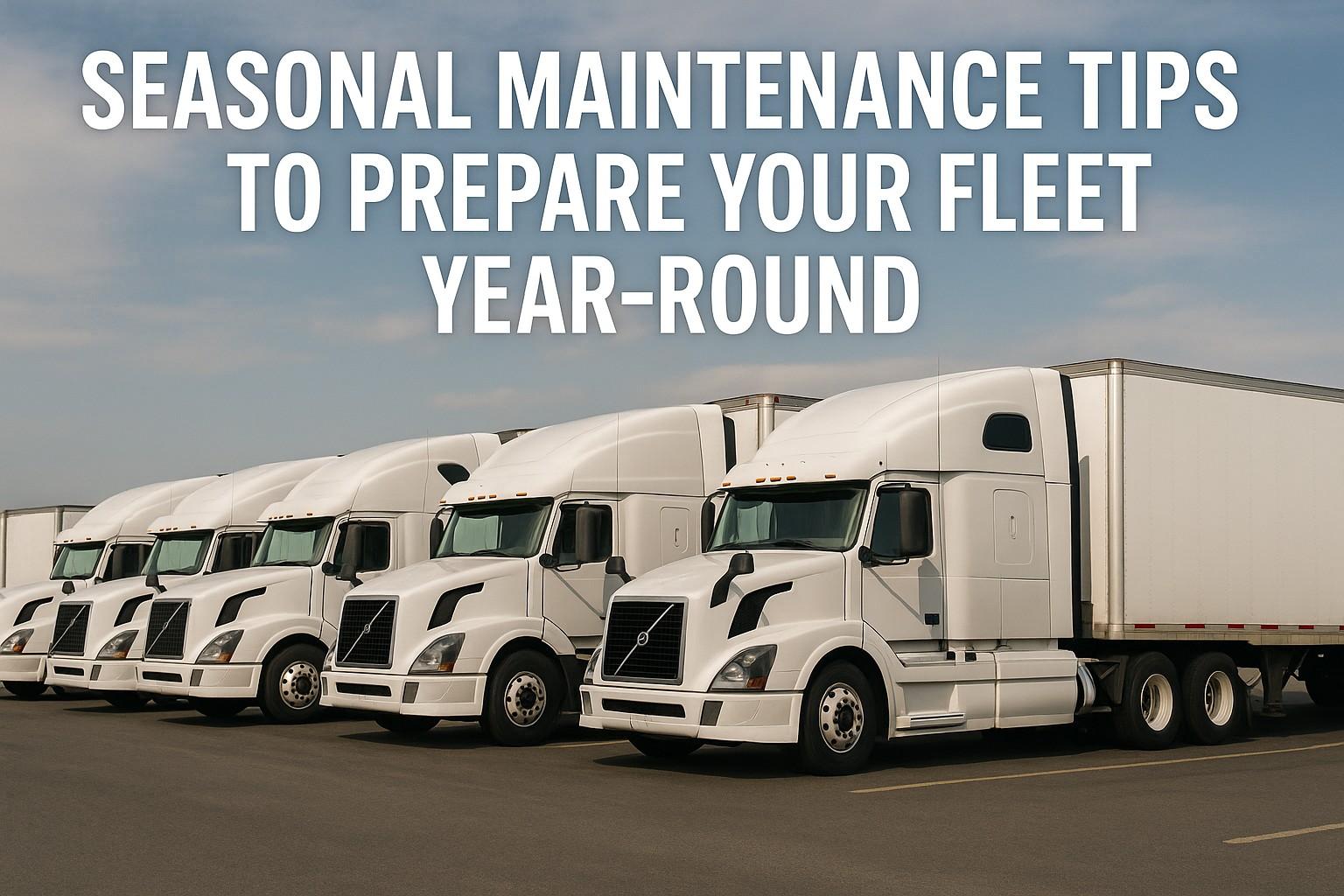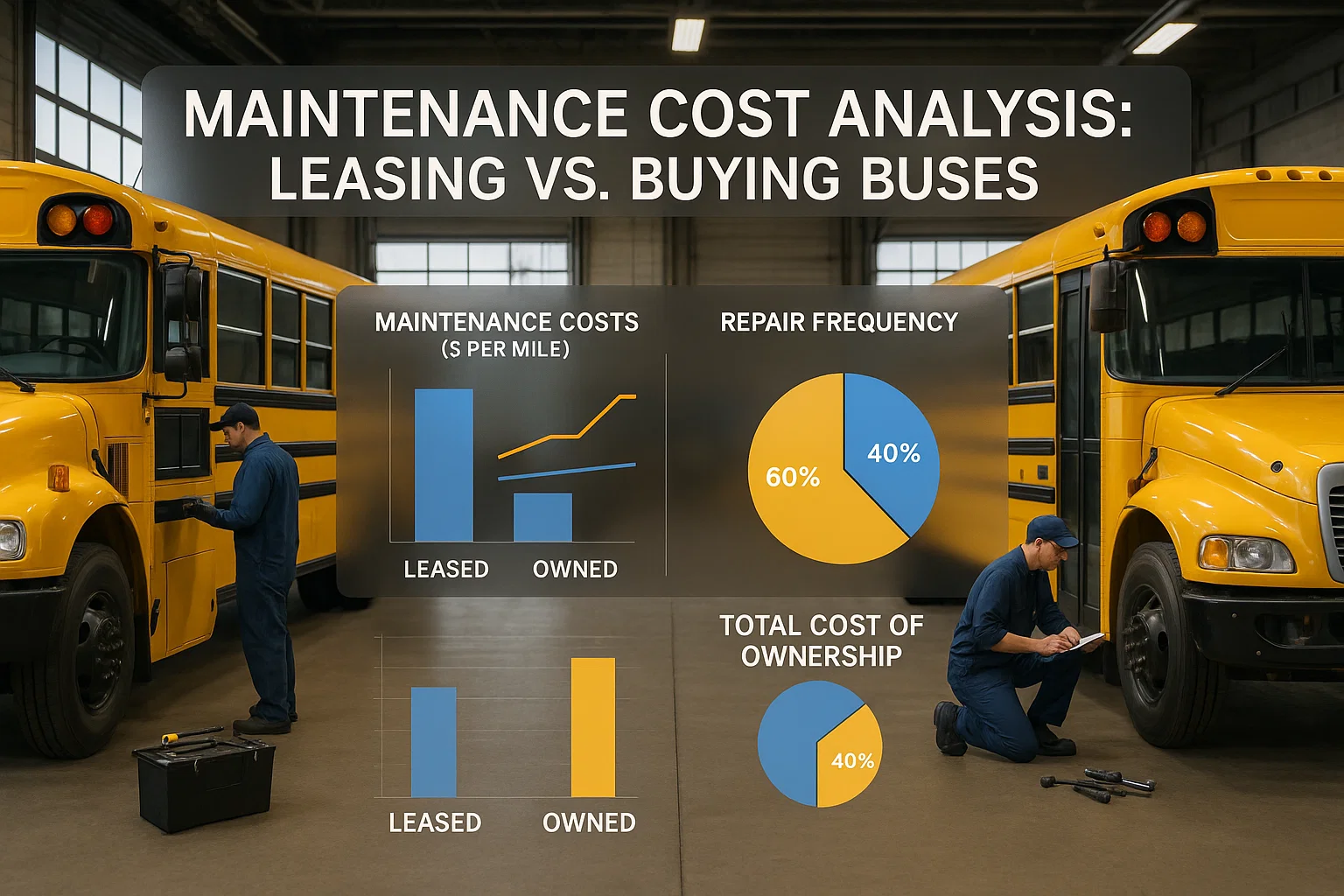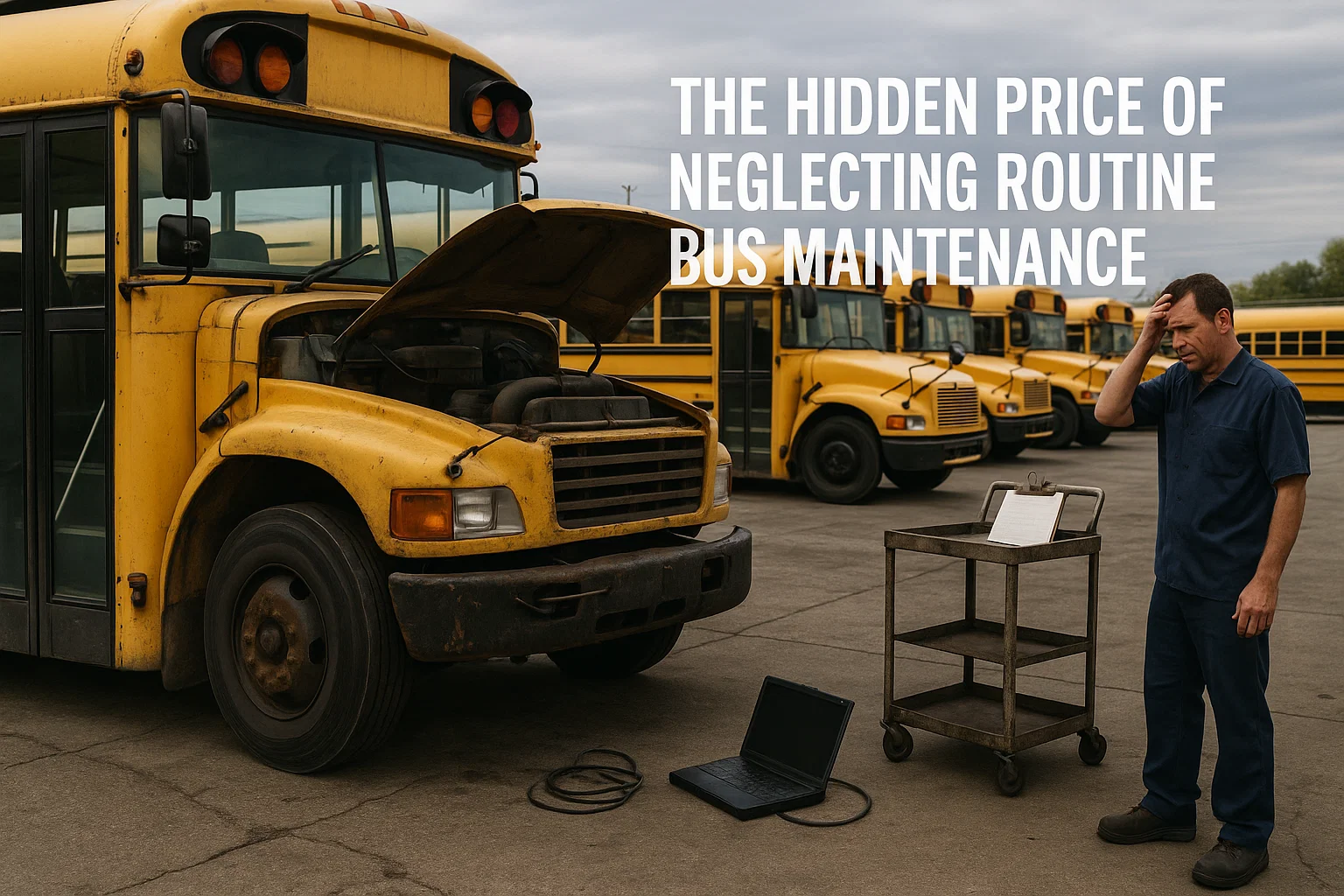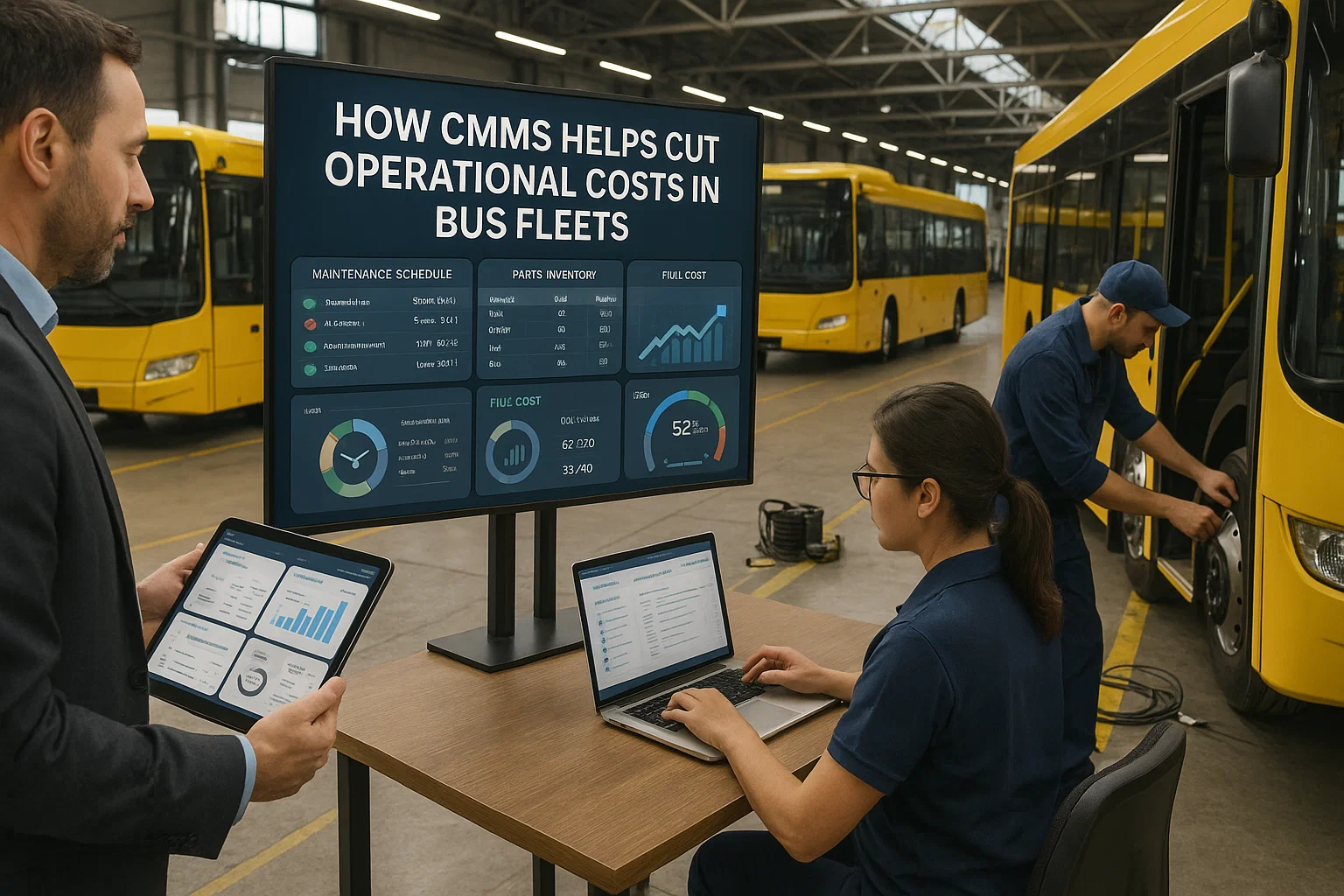Seasonal changes present unique challenges for US bus fleets, requiring strategic maintenance approaches that address weather-related stresses, temperature fluctuations, and varying operational demands. From harsh winter conditions that strain heating systems and affect battery performance to summer heat that challenges cooling systems and air conditioning units, each season brings distinct maintenance requirements that fleet operators must anticipate and address proactively.
Modern fleet management demands year-round preparedness strategies that go beyond basic seasonal inspections. Today's bus fleets operate in diverse climates across the United States, from the freezing temperatures of northern states to the intense heat of southwestern regions. This geographic diversity requires comprehensive maintenance protocols that can adapt to local seasonal patterns while maintaining consistent fleet performance and passenger safety standards.
Implementing systematic seasonal maintenance through advanced Bus CMMS platforms enables fleet operators to reduce weather-related breakdowns by up to 40% and extend component life significantly. Data-driven seasonal preparation transforms reactive responses to weather challenges into proactive maintenance strategies that ensure optimal fleet availability throughout the year.
Seasonal Maintenance Planning Architecture
Effective seasonal preparation requires a comprehensive planning architecture that integrates weather forecasting, historical maintenance data, and predictive analytics. Modern Bus CMMS systems provide the framework for systematic seasonal maintenance planning by analyzing regional climate patterns and correlating them with component failure rates and maintenance requirements.
Climate-Based Maintenance Scheduling
Advanced fleet management systems consider local climate data, including temperature ranges, precipitation patterns, humidity levels, and seasonal weather events. This climate intelligence enables fleet operators to schedule preventive maintenance activities during optimal weather windows and prepare vehicles for upcoming seasonal challenges.
Integration with weather services through Bus CMMS platforms allows for dynamic maintenance scheduling that adapts to seasonal forecasts, ensuring critical maintenance activities are completed before severe weather impacts operations.
Seasonal Warning Signs and Critical Indicators
Winter Preparation Warning Signs
- Battery Performance Degradation: Monitor battery voltage, cold cranking capacity, and charging system efficiency as temperatures drop
- Heating System Inefficiencies: Assess heater core condition, coolant levels, and HVAC blower performance before cold weather
- Tire Condition Assessment: Evaluate tread depth, tire age, and consider winter tire requirements for snow and ice conditions
- Fuel System Winterization: Check fuel filters, water separators, and consider fuel additives for cold weather operation
Summer Preparation Critical Checks
- Cooling System Stress: Monitor coolant condition, radiator efficiency, and air conditioning refrigerant levels
- Engine Temperature Management: Assess cooling fan operation, thermostat function, and heat exchanger cleanliness
- Tire Heat Resistance: Check for proper inflation, tread wear patterns, and heat-related deterioration
- Electrical System Strain: Monitor alternator performance and battery condition under increased air conditioning loads
Implementing comprehensive seasonal monitoring through Bus CMMS platforms enables fleet managers to identify potential seasonal issues before they impact operations. Real-time data collection and analysis provide early warning indicators that allow for proactive intervention and maintenance scheduling.
Seasonal Maintenance Scheduling Optimization
Strategic seasonal maintenance scheduling requires balancing manufacturer recommendations with regional climate demands and operational requirements. Modern Bus CMMS systems analyze historical seasonal maintenance data, weather patterns, and fleet utilization to create optimized seasonal preparation schedules.
Seasonal Maintenance Calendar
Spring Preparation (March-May)
Post-winter system recovery including air conditioning system startup, cooling system flush, tire rotation, and comprehensive vehicle inspection after winter stress
Summer Readiness (June-August)
Cooling system optimization, air conditioning maintenance, battery testing under heat stress, and tire pressure management for hot weather operation
Fall Transition (September-November)
Heating system preparation, battery replacement before cold weather, antifreeze system service, and winter tire installation in applicable regions
Winter Operations (December-February)
Cold weather monitoring, heating system optimization, battery performance tracking, and snow/ice equipment maintenance for applicable fleets
Predictive Analytics for Seasonal Challenges
Advanced predictive analytics through Bus CMMS platforms transform seasonal maintenance from reactive to predictive by analyzing weather patterns, component performance data, and historical failure trends to anticipate seasonal maintenance needs.
Seasonal Analytics Applications
- Weather Correlation Analysis: Correlate component failures with weather conditions to predict seasonal maintenance requirements
- Battery Performance Modeling: Predict battery capacity degradation based on temperature patterns and age factors
- Cooling System Optimization: Analyze coolant temperature data and ambient conditions to optimize cooling system performance
- Tire Wear Prediction: Model tire wear patterns based on seasonal road conditions and temperature variations
Machine learning algorithms within modern Bus CMMS systems continuously improve seasonal predictions by learning from fleet performance data and weather correlations, enabling increasingly accurate seasonal maintenance planning.
Seasonal Inventory Management Strategy
Effective seasonal maintenance requires strategic inventory management that anticipates seasonal component demands and ensures critical parts availability during peak seasonal stress periods. Modern Bus CMMS systems integrate seasonal demand forecasting with inventory management to optimize parts availability and minimize carrying costs.
Seasonal Inventory Optimization
Smart seasonal inventory management considers weather forecasts, historical seasonal failure rates, and regional climate patterns. Critical seasonal components like batteries, coolant, heating elements, and air conditioning components require strategic stocking levels based on anticipated seasonal demands.
Integration with supplier networks through Bus CMMS platforms enables automated seasonal inventory adjustments, ensuring adequate stock levels for peak seasonal maintenance periods while avoiding excess inventory during off-seasons.
Technician Training for Seasonal Challenges
Seasonal maintenance effectiveness depends on technician expertise in addressing weather-related challenges and seasonal system requirements. Comprehensive training programs ensure technicians understand seasonal maintenance protocols and can effectively utilize Bus CMMS systems for seasonal planning and execution.
Seasonal Training Program Components
Winter Maintenance Protocols
Cold weather starting systems, battery testing procedures, heating system diagnostics, and winter tire installation techniques
Summer System Optimization
Air conditioning system service, cooling system maintenance, heat stress component inspection, and hot weather operation protocols
Seasonal CMMS Utilization
Comprehensive training on Bus CMMS seasonal planning features, weather integration, and predictive maintenance workflows
Seasonal Implementation Best Practices
Successful Seasonal Maintenance Guidelines
- Regional Adaptation: Customize seasonal maintenance protocols based on specific regional climate patterns and weather challenges
- Advance Planning: Begin seasonal preparation 4-6 weeks before seasonal transitions to ensure adequate preparation time
- Performance Monitoring: Establish seasonal KPIs including weather-related breakdown rates, seasonal component life, and climate-specific maintenance costs
- Continuous Improvement: Regular review and optimization of seasonal maintenance procedures based on performance data and weather pattern analysis
Seasonal Maintenance Cost-Benefit Analysis
Implementing comprehensive seasonal maintenance strategies through Bus CMMS systems delivers measurable returns on investment by reducing weather-related breakdowns, extending component life, and improving fleet availability during challenging seasonal conditions.
Seasonal Financial Benefits
Proactive seasonal maintenance reduces emergency repairs by up to 45%, extends component life by 25-30%, and improves fuel efficiency through optimized seasonal system performance. Fleet operators report average cost savings of 20-35% compared to reactive seasonal maintenance approaches, with payback periods of 8-12 months for comprehensive seasonal maintenance implementations.
Conclusion
Year-round fleet performance requires sophisticated seasonal maintenance strategies that anticipate weather challenges and prepare vehicles for optimal operation in all conditions. The integration of comprehensive Bus CMMS platforms with strategic seasonal planning creates a foundation for consistent fleet performance, reduced weather-related costs, and enhanced passenger safety throughout all seasons.
Success in seasonal maintenance depends on commitment to proactive planning, investment in predictive analytics technology, and strategic implementation of weather-aware maintenance practices. Fleet operators who embrace comprehensive seasonal maintenance strategies position themselves for optimal fleet performance regardless of seasonal challenges and changing weather conditions.
Ready to Optimize Your Seasonal Fleet Maintenance?
Discover how Bus CMMS can transform your seasonal maintenance strategy and ensure year-round fleet reliability and performance.








